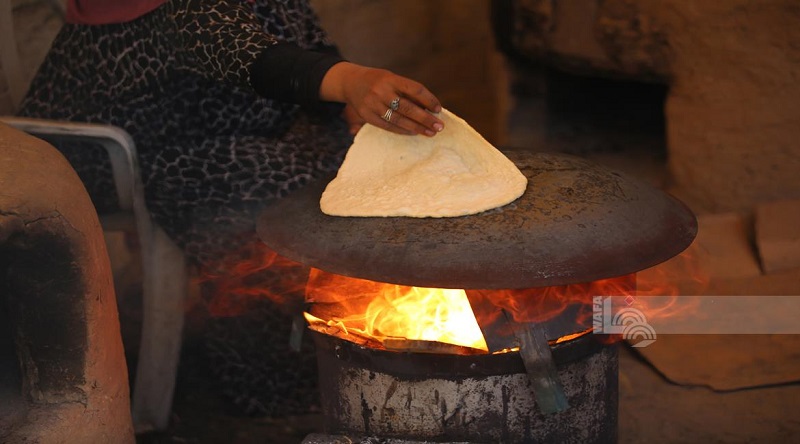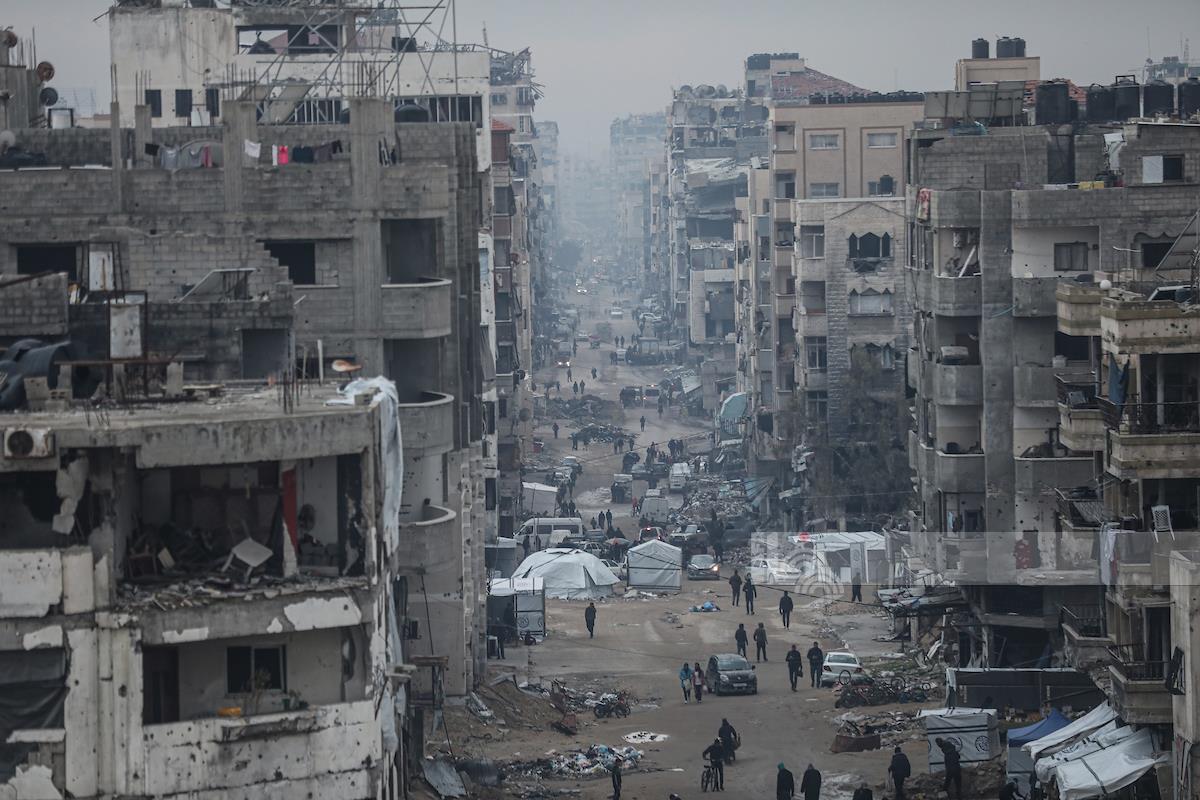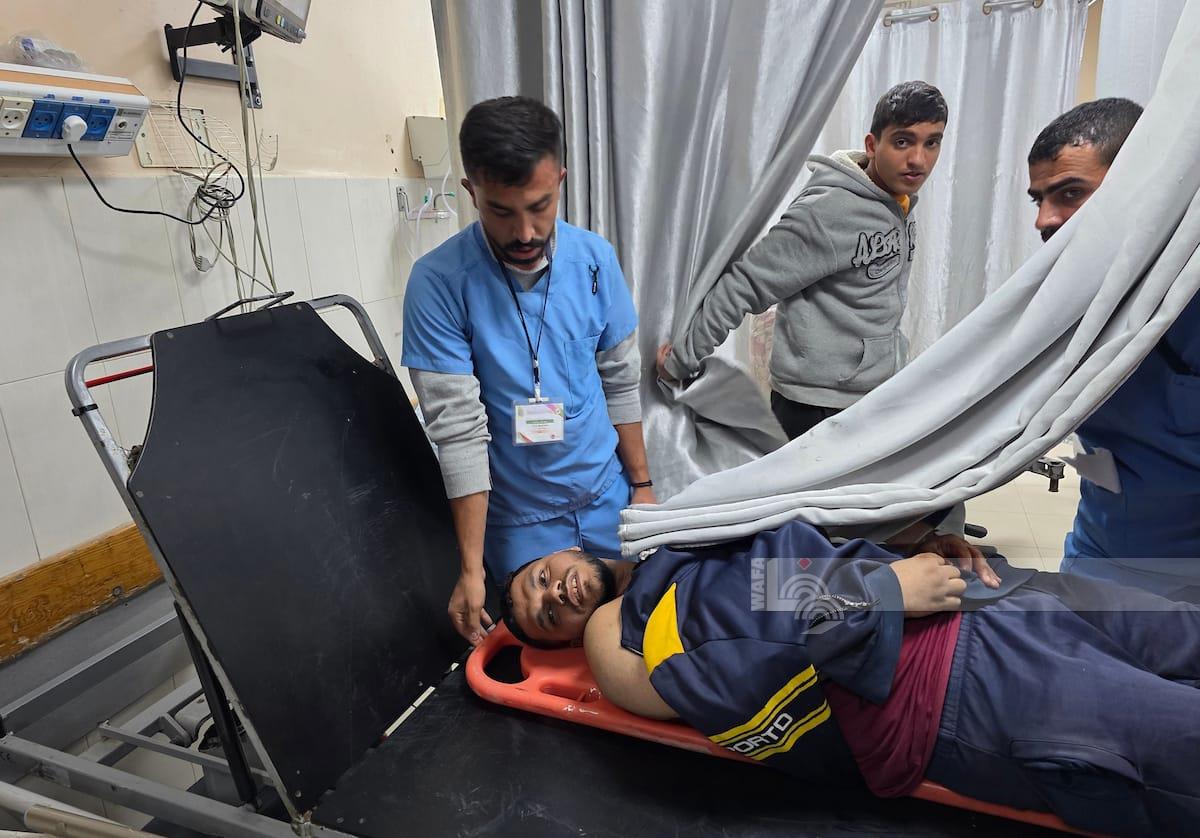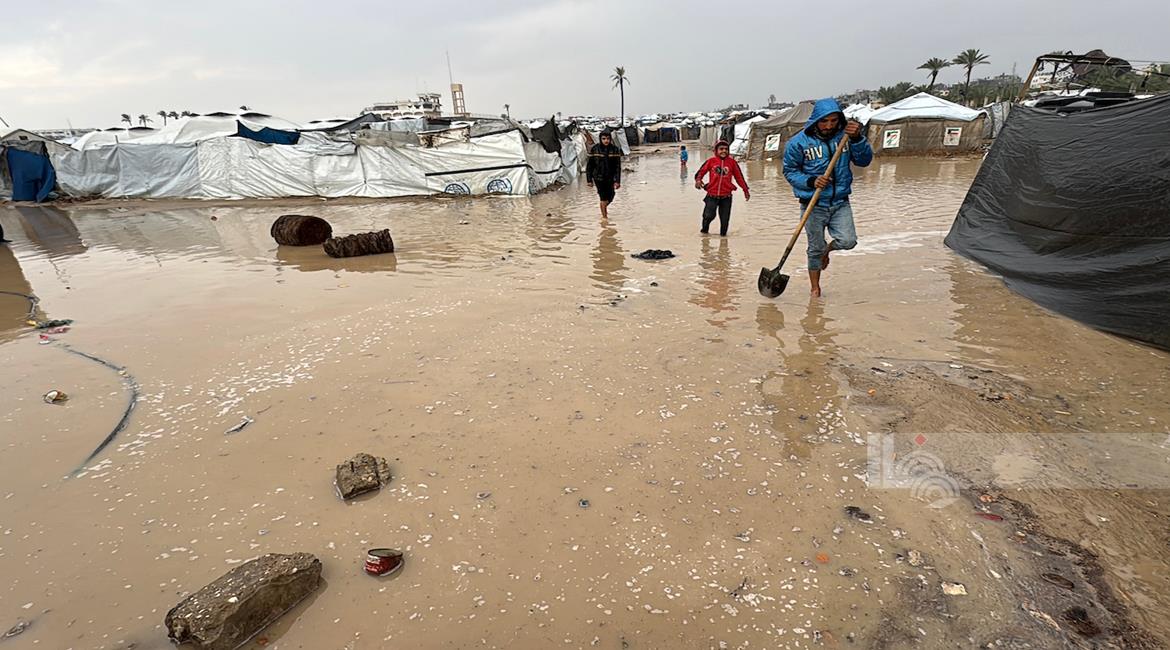By Tareq Al-Astal
GAZA, July 1, 2025 (WAFA) – In the Al-Mawasi area west of Khan Yunis. A Displaced woman Naama Abu Mousa, 33, operates a rudimentary oven to bake bread—not as a source of income or trade, but as the sole means to obtain two loaves to feed her three starving children.
In an interview with WAFA, Abu Mousa said, “I no longer have the money to buy flour... a kilogram of fine flour has reached 40 shekels, an amount far beyond my capacity. That’s why I started offering bread-baking services to displaced people in exchange for a few loaves.”
She added, “Some displaced families bring their dough and firewood, and I bake it for just two loaves. Sometimes no one comes because people here are also unable to afford flour.”
Abu Musa described the conditions in Khan Yunis as "catastrophic," sressing that the flour is stolen by thieves before it reaches those in need, while humanitarian organizations are unable to provide sufficient quantities.
“My husband tried several times to reach the distribution centers in Rafah, but he always came back empty-handed—or worse, risking his life,” Abu Mousa said. “There is random gunfire and sniping, as if trying to get food is a crime.”
He further said that all she want is for the war to stop!
“All I want is for this war to end,” she added, “so we can live a simple life with safety and enough food to survive.”
Sitting next to her, displaced Sanaa al-Astal, 45, waited for her bread. She described the "bread for cooking" concept as an effective means of survival.
She feeds her children, and I get ready-made bread without the effort. It's a win-win-win equation," says Al-Astal, adding: Flour, she said, has become a rare commodity.
“I once bought a kilo for 60 shekels, another time for 50, then 45, and the cheapest was 35—none of which are prices we can afford. But what choice do I have? I’m a mother of four, and I can’t let them hungry.”
Al-Astal also shared the tragedy of losing her husband six months ago, when Israeli soldiers brutally executed him inside their home in the eastern section of Khan Yunis, leaving his body lying in the street for eight days.
“Since then, I’ve never dared to put my children’s lives at risk by sending them out in search of food. Death is lurking around every corner.”
While waiting also her turn, Nidaa Al-Ghalban, 42, echoed support for what she called an act of “humanitarian mutual aid.”
"This simple model reflects the resilience of Palestinian society despite the pain,” she said. “Everyone is trying to help in ways that preserve dignity and sustain life.”
These stories underscore the scale of the humanitarian crisis facing Gaza’s displaced population. Bread has become a rare commodity, and securing it has become a matter of life and death. In the absence of effective international aid Palestinians continue to invent the simplest forms of solidarity and mutual support to survive in the face of hunger, siege, and aggression.
Y.S













